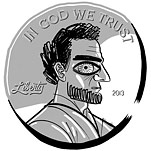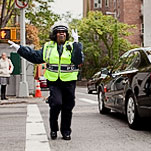I ASKED Mike Nichols, the director of Harold Pinter’s “Betrayal” on Broadway, why love triangles have such a mythic hold on the imagination.
Op-Ed Columnist
From Love Nests to Desire Surveillance

Andy Coulson and Rebekah Brooks sat behind Rupert Murdoch at a service at St. Brides Church in London, in 2005, years before their private lives became public fodder.
By MAUREEN DOWD
Published: November 2, 2013

Fred R. Conrad/The New York Times
“We’re born in a triangle,” he said about parents and a newborn. “That’s the most important one, the triangle that determines who we are, the one that affects the other triangles that you get into in your life. It’s all about that first triangle, what it gives you and what it takes away from you.”
The affair in “Betrayal” takes place from 1968 to 1975, but it feels like a quaint, distant world.
Robert, a publisher, discovers that his wife, Emma, is having an affair with his best friend, Jerry, a literary agent, when he recognizes Jerry’s handwriting on a letter addressed to Emma at the American Express office in Venice.
But maybe that world isn’t so quaint.
The first bombshell out of the London phone-hacking trial of flame-haired Rebekah Brooks and Andy Coulson, a fellow editor who went on to be a spin doctor for David Cameron, is about a six-year secret affair that prosecutors say was conducted by these two top lieutenants of Rupert Murdoch. (The prosecution contends that the affair began when both were single — although Brooks was engaged to the man who would be her first husband — and continued after they both got married.)
Their illicit relationship, too, was exposed by a letter, this one found on a Word document on Brooks’s computer and discovered by investigators in a cupboard in her London home.
Andrew Edis, a prosecutor in the case, read jurors part of the letter on Thursday to underscore the trusting relationship between the pair when they were editors at Murdoch tabloids, The Sun and The News of the World. The relationship supposedly took place between 1998 and 2004, overlapping the period when the lovers are charged with engaging in a criminal conspiracy to hack the phones of celebrities, royalty and even that of an abducted and murdered teenage girl, which cruelly left her parents with the impression she might still be alive.
The prosecutor said that the letter appeared to show a distraught-stricken Brooks trying to talk Coulson out of breaking off the affair.
“Most important,” Brooks wrote, “the fact is you are my very best friend, I tell you everything, I confide in you, I seek your advice, I love you, care about you, worry about you, we laugh and cry together. In fact, without our relationship in my life I’m not sure I will cope.” She continued: “The thought of finding out anything about you from someone else fills me with absolute dread.”
Tabloid editors charged with breaking the law to expose people’s most intimate secrets are now having their most intimate secrets exposed in a court of law. They didn’t just betray their mates, but fellow A-listers. They managed to have an old-fashioned private fling for years while they were using new technology to splash into print the torrid affairs of other bold-faced British names.
Instead of the “pip pip pips” Pinter writes about, the coins dropping into a phone booth at a pub for a “crafty telephone call” to make an excuse about coming home late, they had the pip pip pips of punching digits into older cellphones to hack unsuspecting victims.
Daniel Craig, who plays Robert in “Betrayal,” says the play is set in a misty time when discretion still existed, a time he thinks was sexier.
“It’s impossible to feel sexy when you’re spied on,” he said in a critique of the out-of-control government-technological complex of spying that has chilled American-European relations.
Noting that “it’s generational,” he told me that when he expresses his dismay to his 20-year-old daughter and other kids about it, they’re “kind of, whatever.”
“Look,” Craig continues, “the fact that people send Instagrams and immediately upload a photograph of themselves doing something embarrassing that is going to be on the Internet, it just brings me out in hives.”
Calling Big Brother technology a “complete anti-aphrodisiac,” he thinks iPads should be banned from the bedroom “unless you’re both watching porn on the Internet.”
In the pre-smartphone universe of “Betrayal,” Jerry and Emma can set up a love nest for years without anyone in their smart literary set finding out.
- 1
- 2










